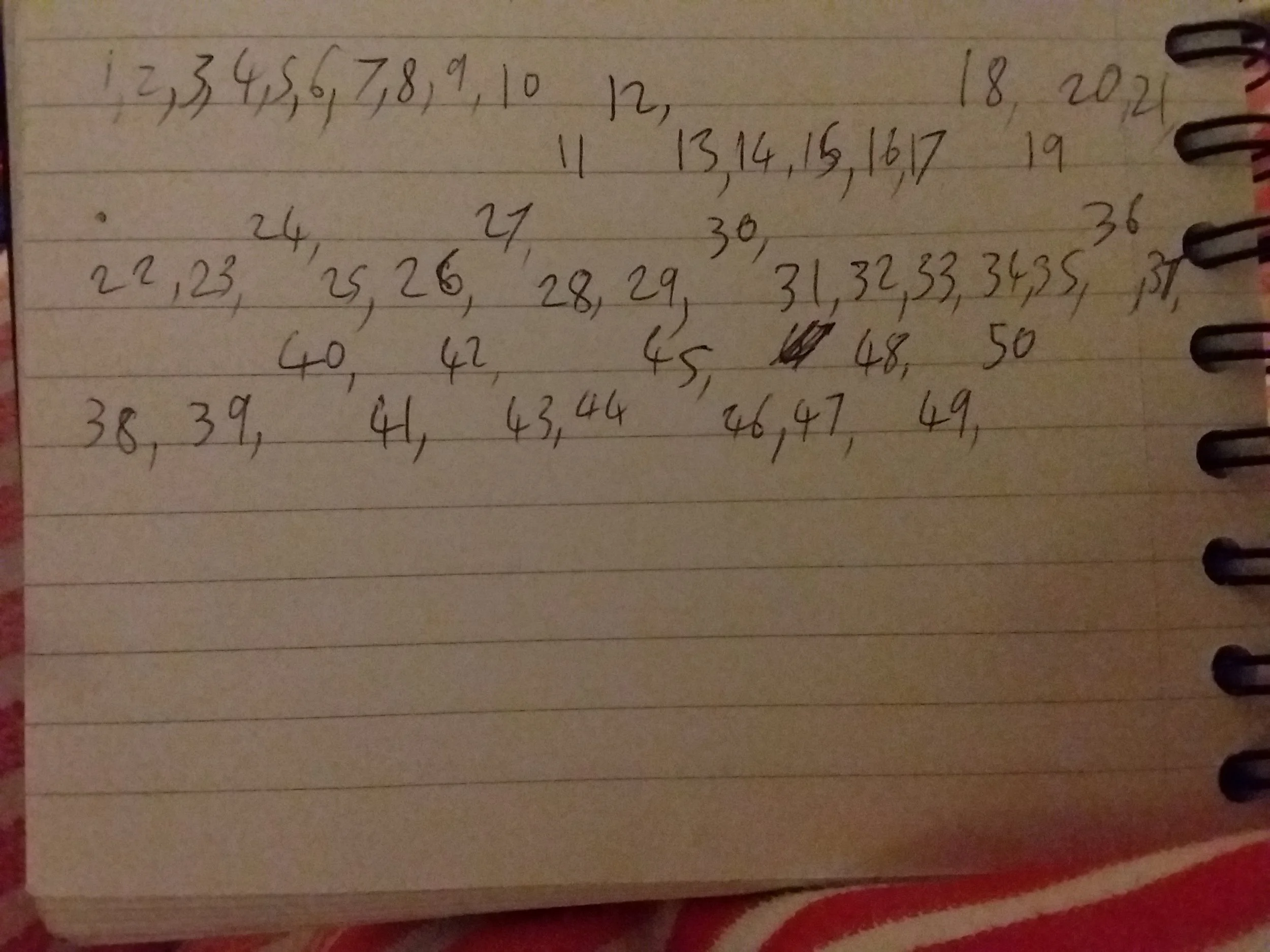Mersenne Primes
Mersenne primes are prime numbers which are one less than a prime power of two, so 2^p - 1 where p is a prime number. So, plugging the first few prime numbers in, we get this table.
| 2^2-1 | 3 |
|---|---|
| 2^3-1 | 7 |
| 2^5-1 | 31 |
| 2^7-1 | 127 |
However when we put in p=11 we get 2^11 - 1 = 2047 which is 23 x 89 which makes it not prime.
In general, testing whether a number is prime is hard. People can recognise small factors, but if I gave you 91 or 221 then it might take a while to work out whether they are prime or not. (Neither are.) We do have some special number theory tricks, but Mersenne primes are of a special form which means that we a much shorter method to check. All of the biggest primes that we have found have been of this form.
So far we have found 49 Mersenne primes. They four above were all known since antiquity, but it wasn't until 1456 until we worked out that 2^13-1=8191 was prime and another century on until we got both 2^17-1=131071 and 2^19-1=524287 in 1588. Then in 1722 we had Leonhard Euler’s contribution of 2^31-1 which is the next one at 10 digits long.
Work has been slow, but over the centuries many of the greats of mathematics have contributed one or two of these special primes to the list with increasingly clever methods. However the advent of computing briefly opened the game up to amateurs. For example, the 25th Mersenne Prime was found by high school students Landon Curt Noll and Laura Nickel with the use of their school computer lab. It is 2^21701-1.
Every few years we discover another Mersenne Prime, but the workload has become so large that we have crowdsourced it. The Great Internet Mersenne Prime Search (GIMPS) has software that you can have running on your computer in the background crunching the numbers. The last one (the 49th so far) was officially discovered on the 7th January 2016, although the computer actually discovered the prime in September 2015, but it failed to send the email to alert humans.
An interesting quirk along the way: on the 3rd November 1961 Alexander Hurwitz managed to find two Mersenne Primes on the same day (the only time that that has happened). He was reading the computer printout backwards and so actually discovered the larger one first.
You can find the whole list here.
One special thing about Mersenne Primes is that you can use them to make Perfect Numbers. A number is perfect if it is the sum of its factors (other than itself). For example 28 has the factors 1, 2, 4, 7, 14 (and itself 28). 1+2+4+7+14=28. This property is really rare. However, if you have a Mersenne Prime of the form 2^p-1 then 2^(p-1)*(2^p-1) is perfect. So since we know 2^5-1=127 is a Mersenne Prime, then 2^4*(2^5-1)=64*127=8128 is a Perfect Number. So for every Perfect Number we have found has been of this form. It is an open problem whether any others exist.






